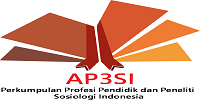Media Literacy and Behavioral Change on Vaccination Issue in Malaysia
DOI:
https://doi.org/10.24036/scs.v10i1.489Keywords:
Behavorial change, Internet, Media literacy, Social media, VaccinationAbstract
Vaccination is a hotly discussed topic that has been around for a long time. Part of this is because many people, particularly parents, have false beliefs about vaccinations and avoid vaccinating their children. If this kind of speculation keeps getting worse, it could pose serious risks to public health. Assumptions about what constitutes reality and what constitutes rumor are spreading like wildfire through the media, especially the Internet, and may be to blame. Therefore, they need to have knowledge of vaccination, which can be received through numerous sources such as the internet, television, radio, newspapers, books, and others. This research aims to measure parents' familiarity with and comfort using various forms of media and their habits around their online searches for data related to childhood vaccinations. The primary tool for data collection in this study was a questionnaire, making quantitative research methodologies the backbone of this investigation. The survey used questions taken from earlier research. Parents with children aged one day to fifteen in five regions of Malaysia accounted for 396 of the study's respondents. Partial Least Squares Structural Equation Modelling (PLS-SEM), used in this study, is a method for analyzing hypothesis models, testing and correlating all media literacy constructs, knowledge, and behavior change among parents in Malaysia. All correlations were statistically significant, and the results suggest that just two media literacy characteristics genuinely influence change in Malaysian parents. In sum, this research contributes to a deeper comprehension of media literacy. It may provide a tipping point for parents in Malaysia, allowing them to have a deeper awareness of a specific topic and its impact on the shift in parenting practices in that country.











